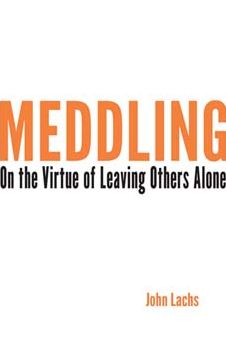Book Two: A Criticism of the Highest Values That Have Prevailed Hitherto
II: Criticism of Morality§269 I shall try to regard all moralising, with one glance, as a phenomenon. Also as a riddle. Moral phenomena have preoccupied me like riddles. Today I should be able to give a reply to the question: why should my neighbour’s welfare be of greater value to me than my own? And why is it that my neighbour himself should value his welfare differently from the way in which I value it, that is to say, why should precisely my welfare be paramount in his mind? What is the meaning of this “Thou shalt”, which is regarded as “given” even by philosophers themselves?
The seemingly insane idea that a man should esteem the act he performs for a fellow-creature, higher than the one he performs for himself, and that the same fellow-creature should do so too (that only those acts should be held to be good which are performed with an eye to the neighbour and for his welfare) has its reasons, namely, as the result of the social instinct which rests upon the valuation, that single individuals are of little importance although collectively their importance is very great. This, of course, presupposes that they constitute a community with one feeling and one conscience pervading the whole. It is therefore a sort of exercise for keeping one’s eyes in a certain direction; it is the will to a kind of optics which renders a view of one’s self impossible.
My idea: goals are wanting and these must be individuals. We see the general drift: every individual gets sacrificed and serves as a tool. Let any one keep his eyes open in the streets: Is not every one he sees a slave? Whither? For What?
This points toward the irreparable defect in Christian ethical teaching, the expectation that we regard our neighbor’s well-being as more important than our own. There are two distinct flaws in this.
First, this makes looking after my own interests something that has to be smuggled-in, something shameful and done on the sly — and therefore likely to produce the guilty sensation that Holy Men so happily exploit. Second, my estimation of my neighbor’s well-being can be made only on my own terms and according to my own understanding, with the possibility that ‘helping’ my neighbor works an injury because what my neighbor wants isn’t what I think he should want.
Christian ethical teaching turns out to be license to be destructive busybodies who conspire to force everybody into the same mold.

